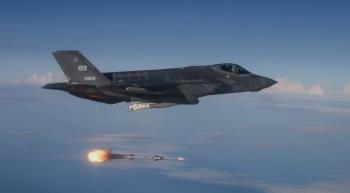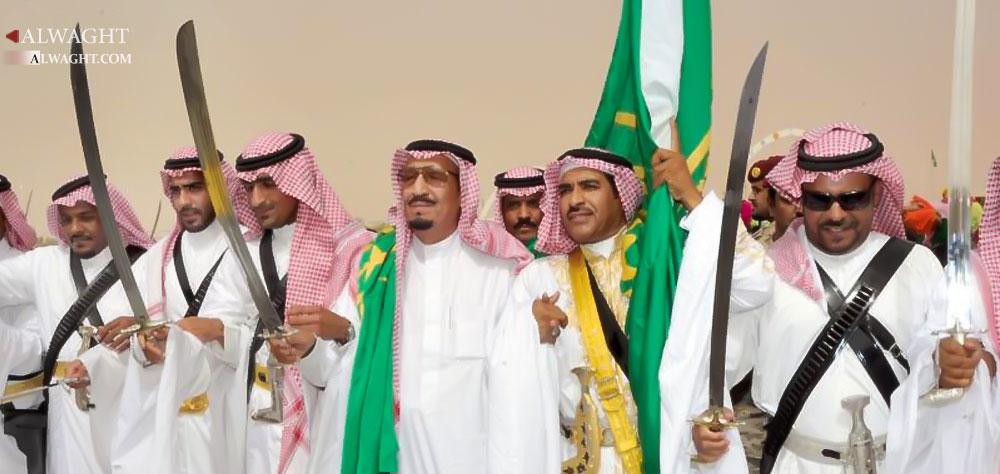Alwaght- The recent Persian Gulf states crisis with Qatar started first when Riyadh through its official news service, stated on Monday that it cut diplomatic relations with Doha for what it called Doha's support for terrorism.
After the kingdom, other allied states including Egypt, Bahrain, and the UAE copied Saudi Arabia's anti-Qatari measures, citing similar accusations for severing relations with Doha.
For some time, the analysts have been recognizing Saudi Arabia's regional policies as being fundamentally tense and destructive.
Seeking position of leadership of the Muslim and Arab world, the Saudis have been struggling to get others to their side. But when a party proves defiant to their agenda and the course of their movement, they fail to show tolerance and use various political and economic means to put strains on it.
The cutting of the ties with Qatar and taking punitive measures against the small peninsula state is not unprecedented. Other countries that developed policies that run counter to Riyadh’s have experienced such pressures from the Saudi rulers. If proving something, all these Saudi Arabian steps prove the fact that the kingdom’s leaders have a condescending and domineering approach to the other smaller Arab countries. Such an approach is widely viewed as being consistent with the Saudi Arabia's standoffish geographical nature.
Adopting the tensest regional policy
It is by no means an exaggeration or divorce with reality if the kingdom’s regional policy is labeled the most edgy and controversial one.
At the present time, Saudi Arabia has its relations cut with the three countries of Iran, Syria, and Yemen, and very latest one Qatar. Its relations with other regional parties is far from stable and normal and are subject to many highs and lows. For example, its ties with Iraq is very frayed and it reopened it embassy in Baghdad in early January 2016 after five years of a diplomatic row. Even after reactivation of the Saudi diplomatic representation in Iraq, the two countries relations did not go normal. Saudi ambassador’s interventionist comments made the Iraqi foreign ministry to summon him several times in protest. The occasional tensions even resulted in Baghdad calling on Riyadh to replace envoy to Iraq.
The same fluctuations took place in the Saudi relations ties with other countries including Egypt. Saudi Arabia cut oil supply to Egypt after Cairo maintained that it supported Syrian war against terrorism. Riyadh stopped oil shipment to Egypt when Cairo voted in favor of Russian-drafted UN resolution as the Syrian government was fighting to recapture from the terrorists the northern city of Aleppo. Saudi Arabia called the Egyptian vote “painful.” The tension over the Egyptian UNSC vote could take the political relations of the two Arab countries to the brink of total collapse.
Following the vote, Saleh Fahad, a Saudi Arabian analyst and journalist, posted on Twitter that the kingdom sent a protest letter to the Egyptian President Abdel Fatah el-Sisi threatening that the Persian Gulf Arab states, a bloc providing major aid packages to Egypt, could withhold more financial support from Cairo. Fahad further said that the letter simply told the Egyptian leader that as long as you support Syria, Russia, and Iran stances, you cannot expect aids from the Arab countries.
The Saudi-Egyptian tensions lasted for nearly six months, then the crisis winded down and they returned to normal relations, influenced by the Saudi Arabia's need to the Egyptian support in the Arab world and on the other side Egypt's need to the Saudi financial support. With this background of Riyadh behavior in dealing with the opposite voices, the sudden severing of ties with Qatar is not the first abnormal reaction of the Arab kingdom to another government, a signal that this type of Saudi Arabia’s approach will continue to create controversy in the region.
This tension-making behavior comes while the Saudi Arabian leaders call themselves the “custodian of the two holy mosques”, a title exploited by them to present themselves as holding the leadership in both the Arab and Muslim worlds for their country’s hosting of Islamic holy places in Mecca and Medina.
But their claims of leadership look in full contradiction to the reality given their aggressive regional policies. It is not convenient that a Muslim party like Riyadh on the one hand claims heading the Muslim world and on the other hand cuts ties with four major Muslim countries and even launches an aggression against Yemen, a neighboring Muslim nation.
What do the “custodians” look for?
The kingdom on the one hand claims having a leading role in the Muslim world and on the other hand follows policies extremely controversial in relation to the regional nations. The question is what does all this paradoxical behavior signal to the regional states?
This behavior is not unrelated to the Saudi understanding of leadership of the region. Very likely, the Saudi rulers think that having a key role in the region is synonymous with large-scale interventions and bringing under their control the other nations. With this in mind, any independence of stance will be met by the leaders' disapproval, and they go to the great lengths, including adopting interventionist policies, to make sure that the opposite parties modify their view.
For many years, the generous Saudi aids have been pouring in to the various Muslim countries under the cover of finances for the Islamic institutions. But the later Saudi leaders' expectations from the aid receivers make it crystal clear that motivations other than charity drive such funding. In late February and early March this year, the Saudi ruler Salman bin Abdulaziz visited Malaysia and Indonesia. He during the trip did his best to take in the kingdom’s side these two countries to have them engage in the war on Yemen and the confrontation of Iran. Soon after news spread that the king granted $1 million in funding to a Kuala Lumpur-based Islamic center, the two countries' leaders published a joint statement asserting that Tehran is intervening in the regional countries' domestic affairs, a claim regularly repeated in the Persian Gulf Cooperation Council summits' closing statements to serve Saudi Arabia’s agenda.
Malaysia's anti-Iranian stances come as the country is engaged in sizeable trade relations with the kingdom, and Saudi Development Fund (SDF) annually provides Malaysia with funding to help the Islamic centers of the country push forward with their invitation to Islam and other religious activities. In fact, the Saudi Arabian support for Islamic institutions in Malaysia account for a major part of the bilateral Saudi Arabia-Malaysia relations. Riyadh has been funding Perkim, the Malaysian Islamic Welfare Organization as well as the International Islamic University Malaysia (IIUM) since 1983. The analysts argue that the Kuala Lumpur stances against Tehran during the Saudi ruler's Malaysia visit did not come as a surprise as they were largely influenced by the Saudi aids to this Muslim country.
Saudi Arabia pursues the same funding policy and at the same time interventionist approach in its relations with other parties. Saudi King visited Cairo in April 2016 and reached an aid deal of $25 billion with the Egyptian officials. But less than a year later, Egypt's pro-Syrian UNSC vote turned everything on its head. The Egyptian UN envoy's vote aroused the ire of Riyadh, making the latter cut oil supply. The incident laid bare the fact that independent standings of the regional countries are far from acceptable for Riyadh leaders.
Other countries like Sudan and Jordan took anti-Iranian postures and supported the Saudi-led military coalition’s war against Yemen after receiving the Saudi aids. So Saudi rulers continue their interventions to change other parties' opinions using their money.
The Saudi desire for using its interventionist policy in the region drives harsh Saudi leaders' responses to other regional sides that independently voice their ideas. This is obviously observed these days in political and economic blockade of Doha by Riyadh and other allied countries. Qatari leaders' independence of stance has motivated the kingdom to cut ties and even risk military confrontation with Qatar.



























